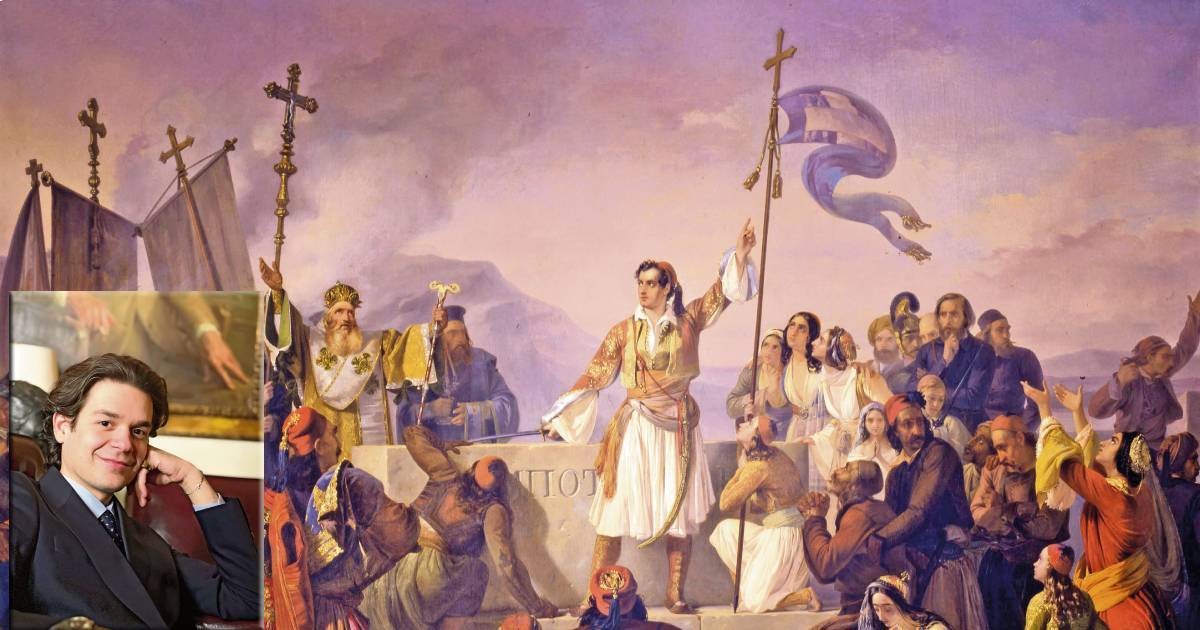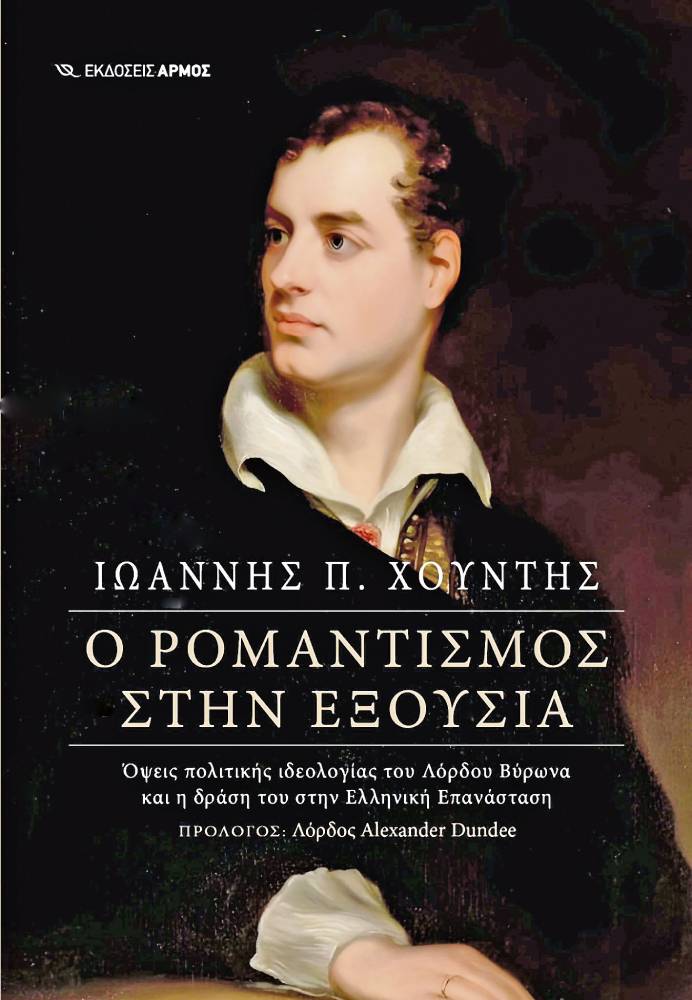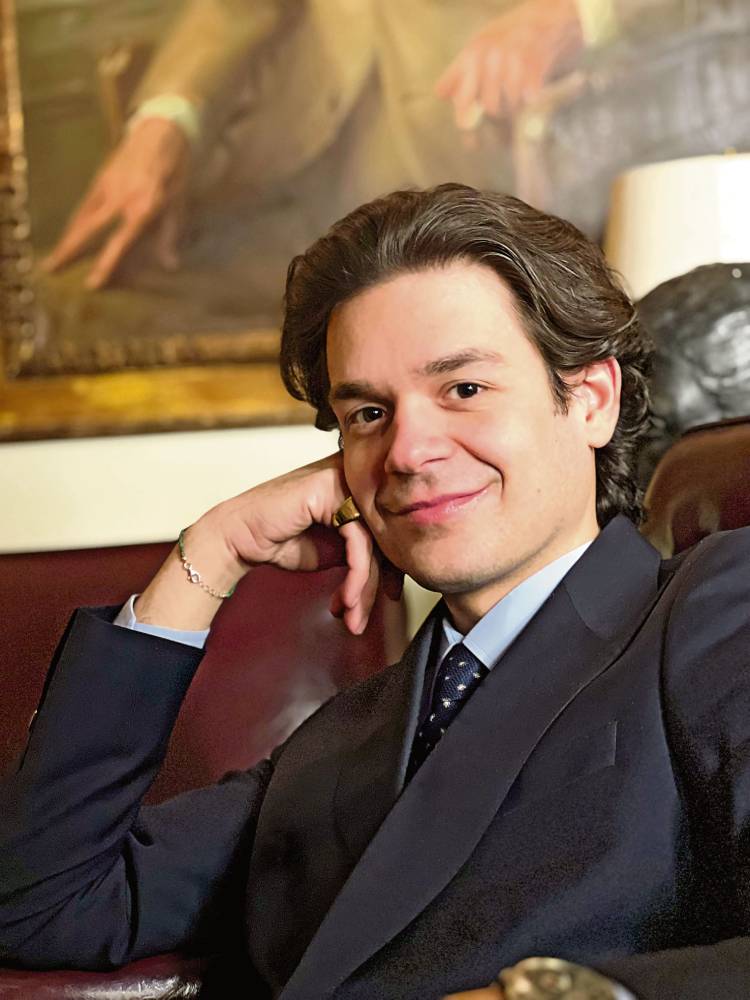Ioannes Chountis de Fabbri – Romance in Power

Aspects of Lord Byron’s political ideology and his action in the Greek Revolution
2024 marks the 200th anniversary of the death of the great romantic poet Lord Byron, who sacrificed his life in the struggle for the independence of Greece. The book by intellectual historian, Ioannes Chountis de Fabbri about Lord Byron, is the result of a systematic study in Greece and Britain, focusing on hitherto neglected aspects of the poet’s activity and life.
Did the Romantic movement unite many foreigners and stimulate Philhellenism so that Greece could finally be saved?
Romanticism as a literary, political, and aesthetic movement, clearly contributed, mainly on a symbolic level, to the success of the Greek Revolution. This happened because of two reasons: On the one hand, it enabled the participation of famous personalities, such as Lord Byron, in the Greek struggle, consequently drawing the attention of the then, still developing, European public opinion to Greece and, on the other hand, because it identified the demands of the Greeks with the dominant ideological precepts of the time.
The essence of Lord Byron’s love of freedom and individuality was rooted in his opposition and the rebellion against the establishment. Something that is still pertinent and timeless?
As I explain in my book, Byron was a political and intellectual product of the 18th century and of Great Britain, of course. In this sense, it is important to understand how he defined freedom and individuality. Indeed, at least as far as the countries of continental Europe were concerned, Byron advocated the liberation of peoples such as the Italians and Greeks from the oppressive yoke of foreign conquerors. This combined with Byron’s Romantic belief in the freedom that people should enjoy and his opposition to conventions, social and otherwise, makes, I would like to think, his career and thought both pertinent to contemporary debates and timeless.
In the course of your research on Lord Byron, was there any information that surprised you or shocked you?
Any historian who reverts to primary sources, records, and archives of any kind, some rare, some forgotten, or underappreciated, should prepare for every possibility. What was of particular interest to me in my research into Byron’s political activities and ideas was how different he appeared from the established perception there is of his life. That is, how much less of a radical he was in many cases, how soberly he acted, especially in Missolinghi during the Greek Revolution, and how far away idealizations of him lie. This is what I have tried to present in the pages of my book, so that, as a historian, I can offer to the public as much of the historical truth as possible.

As you write, contemporary and subsequent popular opinion wanted the poet to have been naïve, politically ignorant, and a scapegoat for politicians’ intrigues during his stay in Misslonghi. Yet you describe him as sober, with realistic and geopolitical political thinking.
Exactly. Byron in Greece put aside his romantic fantasies and art and focused his attention on political action. After all, in his youth he had been an active politician, in the House of Lords, learned the art of politics close to important political figures of the time and always closely followed developments. In Misslonghi he is presented to us at his best, at least on the political sphere as he was not a competent military leader. The greatest achievement of this short stay in Greece, which was violently interrupted by his untimely death in April 1824, was his contribution to successful journey of Greek delegates to the City of London, where the first revolutionary loans were disbursed to Greeks, the result of which was their recognition as combatants against the Ottoman Empire by the British Empire.
If you could describe his personality in a few lines, what would you say?
Goethe once described Byron as a walking contradiction. He was characterised by many contradictions, indeed: radical but also conservative, socially unconformist but also snobbish, generous and miserly, devoted to love but weak in long-term commitment, inspired and so often in ennui, in thrall to his passions but at the same time rational. All these contradictions, eventually, produced Byron.
What are his differences compared to other Philhellenes who played a role in the revolution such as George Jarvis?
Most Philhellenes contributed on a symbolic level to the success of the Greek Struggle, but practically few helped to the extent that Byron did. This does not, of course, detract from their contribution and indeed there were hundreds of people, both famous and “anonymous”, from abroad who came and fought for the freedom of Greece. I think, however, that no one approaches Byron’s singular contribution.

Can we say that the Greek Revolution, for Lord Byron, was the purgatory of a brave soul that had to be sacrificed to shine through the ages?
It does not follow from my research or historical reality, as I read it, that Byron came to Greece to die. Such a thing would, after all, be rather incomprehensible. His arrival to the country was the result of many different factors, which I tried to analyse in my book. But in any case, he fell – albeit ingloriously – fighting for Freedom and this established him in the consciousness of everyone, in Greece and abroad. This is what we will celebrate in 2024, a year marking the bicentenary of his death.
Thank you very much!
Who is who?
Ioannes Choundis de Fabbri with origins from Greece and Malta, lives permanently in London and is a PhD candidate in the History of Ideas at the University of Aberdeen. He is also a consultant in the House of Lords of the United Kingdom. His research focuses on the political thought of the 18th century and especially the thinker Edmund Burke. He has a degree in Classical Literature and has completed post-graduate studies in Political Philosophy and History. His articles have been published in Edited Books and scientific journals such as The Byron Journal, The European Journal of the History of Economic Thought and the Journal of Eighteenth-Century Studies, and he has given talks at international conferences. He also writes frequently for the international edition of the New York Times/English Kathimerini on Greek-British relations and historical issues.










